Cops’ secret ‘immunity offer’ to solve William Tyrrell case
Former detective Gary Jubelin was on trial accused of breaking the law by secretly recording a suspect in William Tyrrell’s disappearance. Instead, the case exposed infighting within the NSW Homicide Squad and the secret deal hatched to find William.
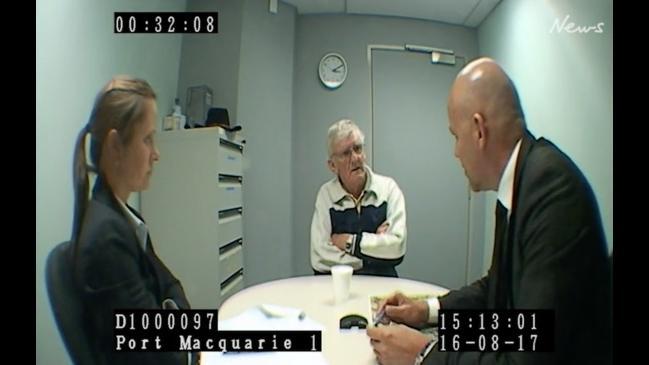
NSW
Don't miss out on the headlines from NSW. Followed categories will be added to My News.
Each day a woman, with her hair swept back in a ponytail and supporters on either side, filed into court 4.2 in the Downing Centre.
She shuffled in behind journalists, family members of the high profile defendant Gary Jubelin, his lawyers and court-watchers, to take a seat in the packed public gallery.
On Thursday morning, Faye Leveson placed a comforting hand on her leg and asked how she was.
The women shared a bond – they have both been the mothers of missing boys.
Ms Leveson’s son Matthew was missing for 10 years before his ex-boyfriend led police to his remains in the Royal National Park in 2017.
The other woman, who can’t be legally identified, is the foster mother of William Tyrrell, the three-year-old boy whose disappearance and suspected abduction in 2014 has shocked and captivated Australians.

For the past several days these women have put their lives on hold and turned up to support the man who investigated their sons’ cases – retired Detective Chief Inspector Jubelin.
It was Jubelin’s team’s idea to use the inquest into the disappearance of Mr Leveson to offer his ex-boyfriend immunity from prosecution if he led police to the burial site.
The Sunday Telegraph can reveal police made plans to offer the same olive branch to Paul Savage, who was an elderly person of interest in William’s disappearance.
An investigation plan written by Jubelin and tendered in court detailed how consideration may be given to having Savage granted a section 61 certificate in the Coroner’s Court.
The certificate, granted by a coroner, protects a witness from self-incriminating evidence but not from perjury.

After 34 years in the job, Jubelin quit the police force last year, tendering his resignation before he was charged with illegally recording four conversations with Savage during the Tyrrell investigation.
He has faced a hearing in the Local Court, where it has been standing room only after the magistrate knocked back an application from the Commissioner of Police to close the court to the public.
The commissioner’s legal team argued sacred police methodology would be exposed and future covert operations potentially compromised.
However a lawyer representing media outlets, including The Sunday Telegraph, successfully fought the suppression order application.
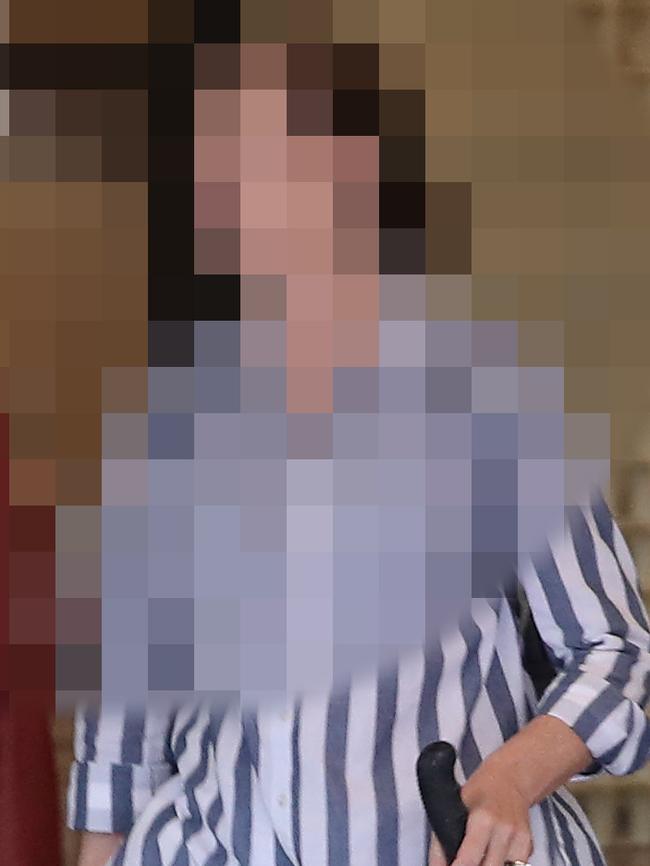
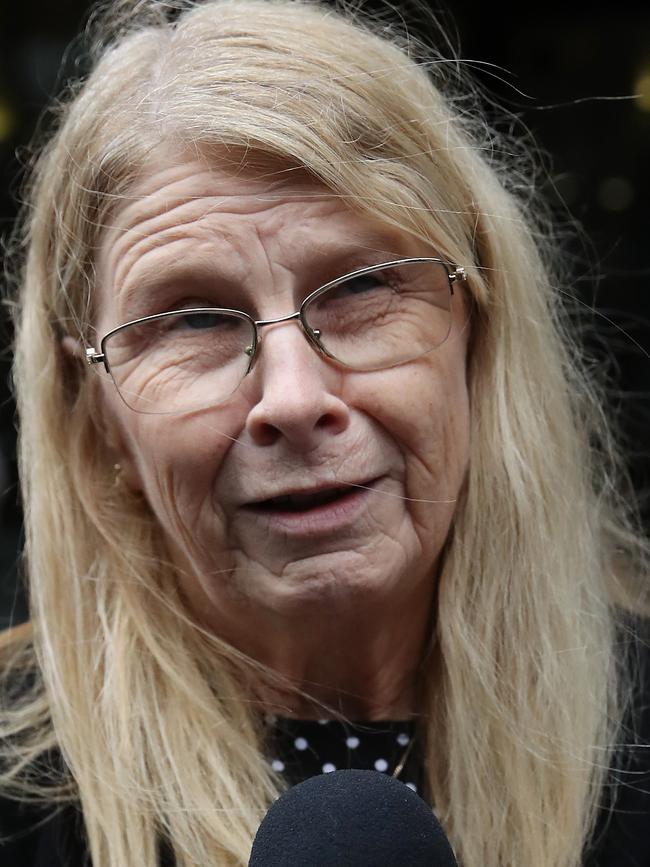
As a result, the courtroom became a forum to explore not only the events leading up to Jubelin’s controversial removal from leading Strike Force Rosann but the intricacies of NSW’s most high-profile missing child investigation.
Jubelin, a polarising but dogged detective who gave his all to the job and expected as much from his staff in return, has pleaded not guilty to the offences.
He told the court he recorded four conversations with a “suspect”, 75-year-old Paul Savage, in 2017 and 2018 to protect his lawful interest. Savage strongly denies any involvement in William’s disappearance and has never been charged.
The prosecution says the recordings were illegal because he didn’t have Savage’s permission and his mobile phone wasn’t authorised to record under the strike force’s warrants.
“No individual police officer is above the law, no matter how serious the crime is,” crown prosecutor Philip Hogan said on Friday.
While the case is centred around whether Jubelin did or didn’t breach the Surveillance Devices Act, it’s been an unflattering exercise for the police force.
The evidence has publicly exposed the internal politics, discontent and egos that shadowed the strike force responsible for finding the little boy dressed in the Spider-Man suit.
The standing of the Homicide Squad – the elite team that rookie detectives aspire to join – has taken a battering.
Jubelin’s solicitor, Lauren MacDougall, said in many of her criminal cases, the Crown argued for courts to admit illegally obtained material because it was valuable to their case. For example, if a random police search of a car turned up drugs, the Crown might argue for the court to admit the evidence even though the search was technically unlawful.
Jubelin, she said, “is being pursued by (the DPP) which so very often relies upon illegally obtained evidence on the basis that even if it was illegally obtained, it allows prosecutors to pursue and convict wrongdoers.”
While there is currently an inquest under way into William’s disappearance, the public have learned more about the case from Jubelin’s hearing than they have inside the coroner’s court.
MISSING
On September 12, 2014, William disappeared from his foster grandmother’s backyard on Benaroon Drive in the tiny village of Kendall on the Mid North Coast.
The case would become one of the state’s biggest investigations, with over 15,000 pieces of information, 600 persons of interest and 1000 false sightings of William.
The simple facts horrified the entire nation: a child disappearing metres from the family home when his mother went inside to make a cup of tea.
Within two weeks of William going missing, the Homicide Squad under the leadership of Detective Inspector Hans Rupp took carriage of the investigation.
Inspector Rupp was approaching his retirement and by the end of 2014, Jubelin learned he would take over.
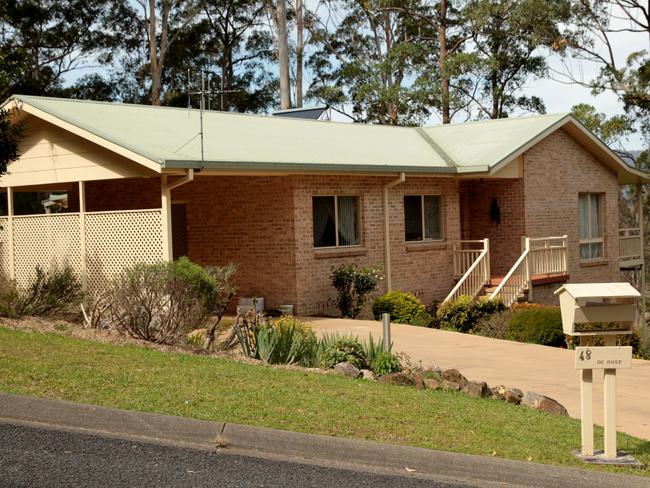
Jubelin had just returned from a 12 month hiatus in Western Australia with his then-wife.
Jubelin wanted to see what life was like without locking up bad guys.
While he discovered a passion for boxing and dabbled in martial arts and lion dance, a quiet life wasn’t his cup of tea.
He returned to the Homicide Squad – where he had already spent most of his career – and took over as the investigations co-ordinator on Homicide’s Team Two.
Jubelin told the court this week the full ramifications of William’s disappearance weren’t initially appreciated before he started.
“I was concerned the highest profile investigation in the state didn’t have an investigation plan five months down the track,” he said.
“A plan outlines the circumstances of which the crime occurred, strategy and directions and how the investigation should be approached.”
More than 1000 “products”, bits of information generated from listening devices, intelligence or other research, hadn’t been reviewed either, he said.
This information backlog became an ongoing issue for the investigation.
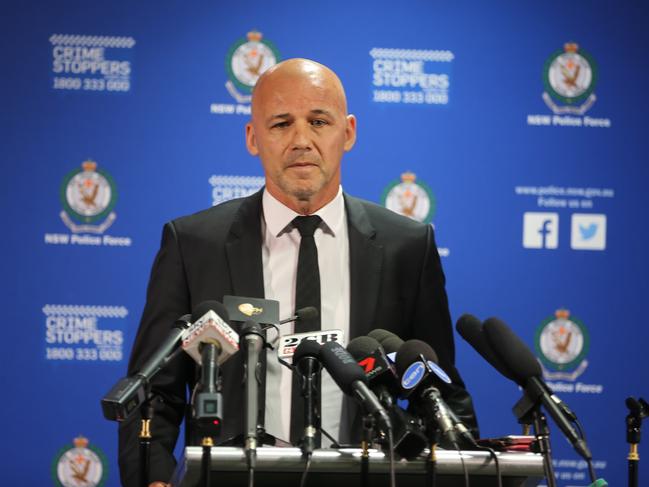
SAVAGE
At one of the strike force’s regular team briefings in 2017, the name Paul Savage came up.
The white-haired widower lived at 43 Benaroon Drive, across the road from William’s foster grandmother.
The court heard the 75-year-old was known as “the street stickybeak,” in Jubelin’s phrase, and had been displaying some “strange” behaviour since his wife, Heather, died in 2015.
Jubelin told the court Savage had been spotted walking around with a photo of his dead wife Heather around his neck and the widower had also been convicted of breaching an apprehended violence order taken out by the local postie, Virginia Tola, who claimed he was harassing her.
There were, Jubelin told the court, red flags.
William’s sister had also told detectives in her interview that she saw William running towards “daddy’s car” before he vanished.
Their foster father had a grey station wagon, just like Savage did, and the children had been waiting for him to return from an appointment on the morning of William’s disappearance.
A couple who lived on Benaroon Drive also told police they heard the sound of a car moving on a gravel driveway. Savage had a gravel driveway, the court heard.
In the weeks before William vanished, the court heard, the child’s foster grandmother had also asked Savage to “stay away” from her house.

On the morning William went missing, Savage said he heard children squealing and playing hide and seek but didn’t physically see them.
He was at home by himself as his wife, who was alive in 2014, went to bingo and left the house about 10:30am.
“A neighbour came up and knocked on the door … she said ‘did you know the little boy up the road has gone missing?’,” Savage said in a police interview played to the court.
“She said ‘they lost a little fella from over the road’.
“I came straight out and crossed the road to see if I could help.”
He went to search around a bush track behind his place, in case the little boy had wandered off there, while William’s family called the police.
Savage knew the area like the “back of his hand”, the court heard.
When he returned, he walked through the back door of his home and made a cup of tea.
During his interview in August, 2017, Jubelin grilled Savage on this.
Wouldn’t you go and tell William’s family if you hadn’t found him, Jubelin asked.
“I was thirsty,” Savage replied nonchalantly.
He claimed he was also anticipating the arrival of his in-laws.
Police went through the records of highway tolls and car registrations to find out when exactly those in-laws arrived.
Jubelin eventually put it to Savage that there was a two hour window between when William disappeared and Savage’s relatives arrived which couldn’t be accounted for.
Savage has strenuously denied any involvement in William’s disappearance and has never been charged.
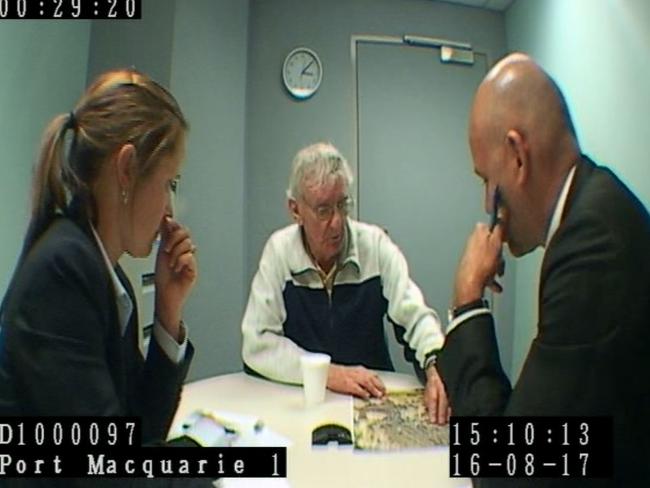
Following an intense police investigation into Savage, Jubelin put a theory to him.
“Are you trying to protect Heather?” Jubelin asked in the 2017 formal interview.
“What I know is that (William’s) grandmother and the mother say ‘we’re going to call the police’ and then I know you disappeared and go back to your house,” Jubelin continued.
“I don’t know if you walked around looking for him. You might have just made a beeline back there, I don’t know.
“Heather might have run William over and you’re covering up for Heather. You might have found him drowned (in Savage’s backyard pool), I don’t know.
“That’s what I am trying to get to the bottom of.”
Savage replied: “I disappeared to look for that little bloke, it had nothin’ to do with the police at all’.
Maybe William got disorientated, Jubelin suggested in the interview, and stumbled into Savage’s yard.
“You’ve got William, (you’re) wondering what to do,” Jubelin suggests.
Savage responds: “It’s 100 per cent rubbish.”
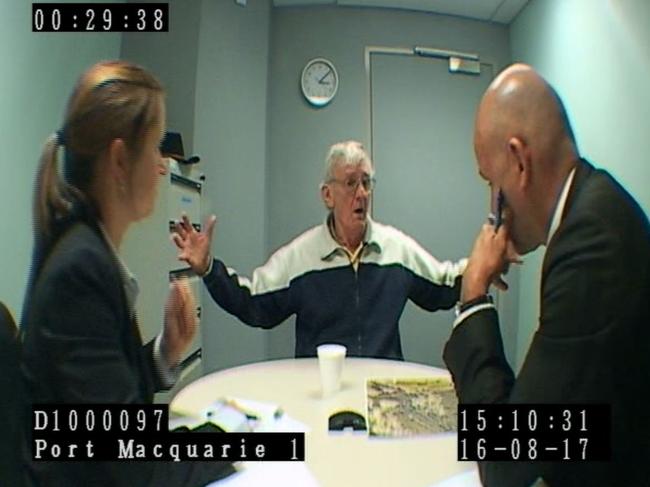
THE SAVAGE STRATEGY
As part of what defence barrister Margaret Cunneen SC called “the novel strategy” targeting Savage, warrants were granted in May 2017 to place listening devices in Savage’s home and car.
Police were also authorised to tap Savage’s home phone and landline.
Surveillance devices are notoriously finicky and unreliable in police investigations.
The devices in Savage’s home sometimes captured every second word, in between the radio blaring in the background, or didn’t work at all.
This is part of the reason why, Jubelin claimed in court, he used his mobile phone to record his conversations with Savage.
On May 2 and 3, 2018, Jubelin, with his phone in his pocket, approached Savage’s front door and spoke to him about the investigation.
In one of the recordings played to the court, Jubelin spoke about the Matthew Leveson case and how he came up with a strategy to find Matthew’s body without getting a conviction.
He told Savage how Matthew’s partner, Michael Atkins, confessed to burying Matthew’s body in a panic after he died of a drug overdose. Jubelin’s strategy saw the Coroner agree to give Atkins immunity in return for leading police to the body.
“There was a bit of pain and a bit of angst, but no one got punished because it is one of those things,” Jubelin said.
“It’s an accident and someone made a mistake at the time.
“Now with this little guy (William) … it it's the case that it was an accident, I could understand how I would panic. I want you to just think about what I’m saying.”
But Savage told him: “There’s no way in the world I would’ve done it.”
The crux of the prosecution against Jubelin is that he didn’t have Savage’s permission to record the conversation and Jubelin’s phone wasn’t covered by the surveillance device warrant.
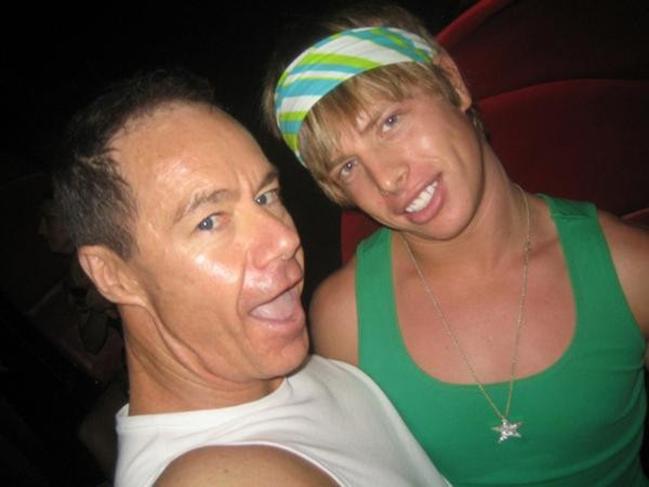
The law was there to protect a person’s right to privacy, the Crown argued.
But Jubelin’s barrister, Margaret Cunneen SC, said the Supreme Court had already curtailed Savage’s right to privacy by allowing police to put bugs in his home to record his conversations.
One of Jubelin’s charges related to an earlier phone call he recorded with Savage in November, 2017.
According to one member of the strike force, Detective Senior Constable Greg Gallyot, Jubelin pulled him into a room and asked him to record the call while he put his phone on speaker.
Gallyot gave evidence he was “shocked” and hesitated before Jubelin told him: “Just do it”.
Jubelin denied saying those words and told the court there was no opposition to his request.
Gallyot, who started his dream job at unsolved homicide on the day he made his statement about the call, told the court he didn’t want to speak up initially because he was scared of being bullied or belittled by Jubelin.
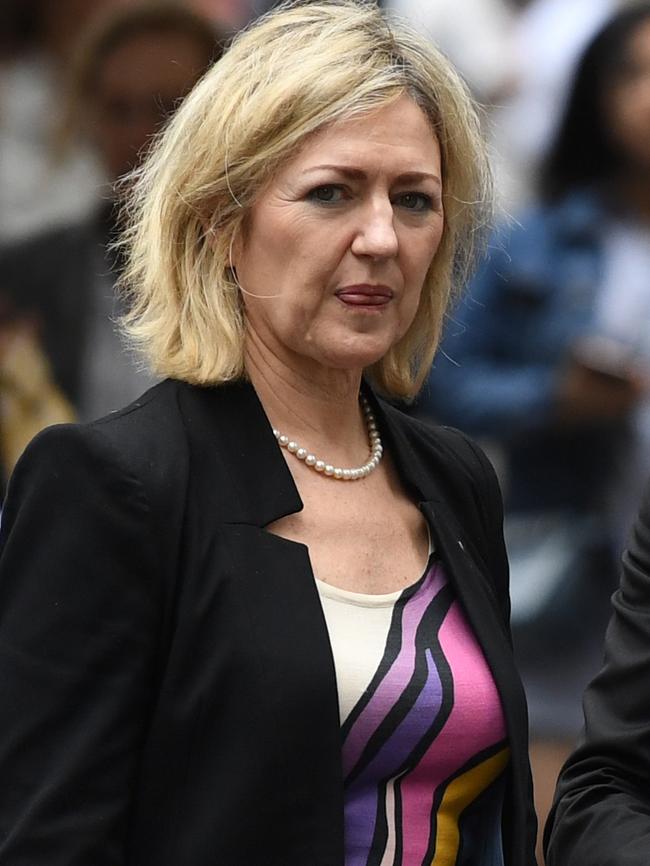
Other officers on the strike force told the court they had never seen Jubelin bully or intimidate his staff.
In the final recorded conversation – not long before he was removed from the strike force – Jubelin went to see Savage, at his request, on December 28, 2018.
Jubelin was on leave but visiting family on the Mid North Coast at the time.
He borrowed his mother’s car to drive to Savage’s home and flagged the visit to the acting head of homicide at the time.
The strategy was for Jubelin to build a rapport with Savage.
So when Savage called and wanted to speak to Jubelin personally, it presented a “golden opportunity” that couldn’t wait, Jubelin claimed.
TENSION
But the court heard some officers on the strike force weren’t sold on the Savage focus and it contributed to dissent in the ranks.
Detective Senior Constable Paul Apthorpe, whom Jubelin referred to as a junior officer, listened to hours and hours of listening device recordings and heard Savage’s repeated denials.
Savage often spoke to himself or his dead wife.
The court heard Apthorpe, who was on secondment to the investigation, started to wonder whether he was telling the truth.
He questioned the strategy targeting Savage and the ability to define his reaction as that of a “guilty man or consistent with someone who is innocent”.
The court heard the officer-in-charge of the case, Detective Sergeant Craig Lambert, even thought the strike force should be investigating the local postie who had taken out the AVO against Savage.
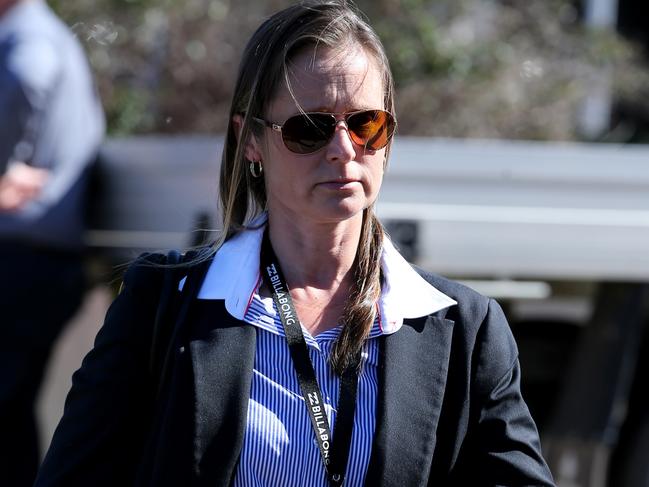
But he was not widely supported.
“I did think it was far-fetched yes,” Det Sgt Beacroft, who worked on the investigation for more than two years, told the court when asked about Lambert’s view about the postie.
On July, 31, 2018, tensions between Det Sgt Lambert and Jubelin boiled over.
At 9:55am inside a briefing room, the strike force discussed what evidence would be presented to the coroner’s court.
According to a witness statement tendered in court, Jubelin and Det Sgt Lambert disagreed over how material from the listening devices inside Savage’s home would be presented.
That led into an argument and Jubelin asked everyone to leave the room.
“I tried to placate him,” Jubelin said during his police interview.
“He came at me and wanted to fight me. We both fight, I’ve sparred with him but he’s six times Australian kickboxing champion.
“I’ve thrown my stuff down and stood my ground. He’s being grabbed by other people.
“He says come on I’ll have you now, let’s go to the PCYC.”
Det Sgt Lambert went on sick leave.
CHARGED
After returning from Glen Innes to oversee an investigation into the shooting of two officers, Jubelin was called to meet with two professional standards command investigators on January 22.
They served him with search warrants for his mobile phones. His gun and the keys to his police car were taken off him. He was banned from the homicide squad office and taken off the William Tyrrell investigation.
A few months later, he handed in his resignation.
In June last year, he was charged with four breaches of the Surveillance Devices Act after a lengthy investigation.
One of Jubelin’s reasons for recording his conversations with Savage was to protect himself in case Savage made a complaint about him.
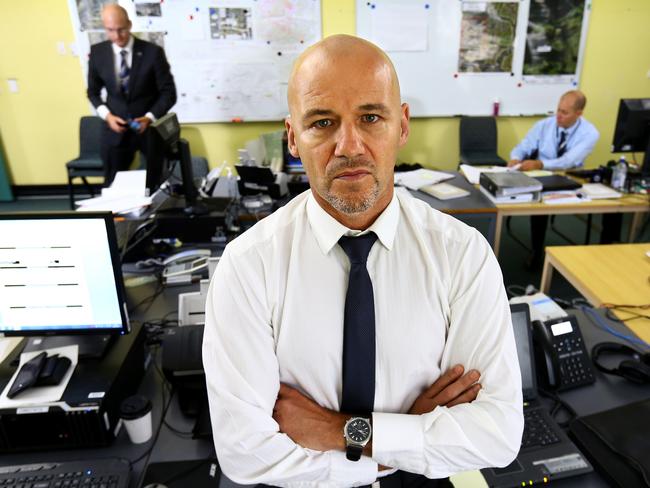
When it came time for Savage to give evidence in court this month, he claimed that Jubelin told him he would return to his house to arrest him.
Unbeknown to Savage, the entire court had listened to the recordings. There was no mention of the arrest. When Cunneen put it to Savage that his claim was untrue, Savage insisted Jubelin had made the claim. In her closing submission, Cunneen said this was the very reason Jubelin made the recording. “That is in effect a very practical example of the personal lawful interest that Mr Jubelin felt he had to ensure was protected,” Ms Cunneen said.
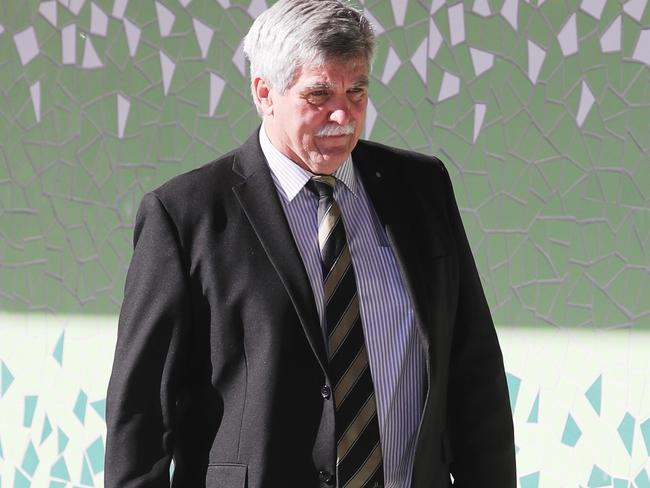
HANDOVER
Carriage of the investigation was handed over to Detective Inspector David Laidlaw as the team prepared for the inquest into William’s disappearance.
William’s foster mother told the court that in the lead up to the inquest, she was concerned that Jubelin’s knowledge of the case had not been passed on before he was sidelined.
She alleged that in March, 2019, then-Homicide boss Scott Cook told her Jubelin was doing a handover with Det Insp Laidlaw.
But Det Insp Laidlaw contradicted that.
“Mr Laidlaw said to me there is no handover,” she told the court last week.
“(He told me) I’m not allowed to talk to Gary. There has not been a handover.”
The foster mother told the court that in the same conversation, Mr Cook, who is now assistant commissioner, said “William was not our only case” and she was not the only relative of a homicide victim.
The sentiment echoed earlier evidence that emerged during the case about Mr Cook’s approach to the case.
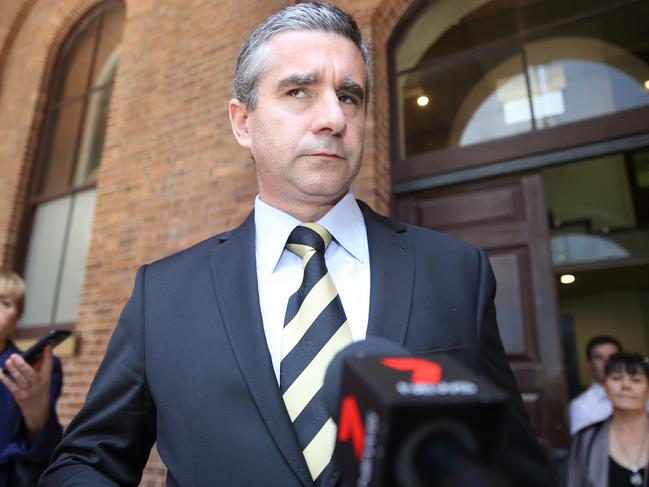
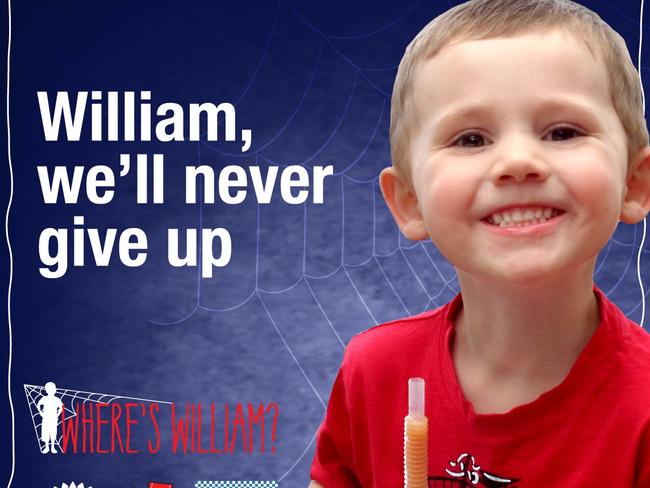
Jubelin alleged Mr Cook told him “no one cares about that little kid” and to get the case to unsolved homicide.
Two other detectives also gave evidence that Mr Cook made comments along the lines of police were wasting their time on the case and police would never get anyone for it.
Mr Cook is an decorated police officer who has carved a career out of investigating serious crime, and who made no secret when he became Homicide boss that he wanted to run things more efficiently, including sending active murder investigations to inquest sooner, and reviewing cold cases more often to try and get results.
Jubelin’s defence team requested that the prosecution call Mr Cook but that did not occur.
Mr Cook categorically denied making those comments to Jubelin and the NSW Police Commissioner issued a statement outlined his confidence in the now-Assistant Commissioner last week.
Originally published as Cops’ secret ‘immunity offer’ to solve William Tyrrell case

